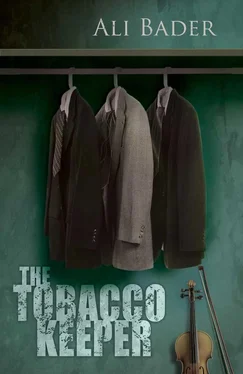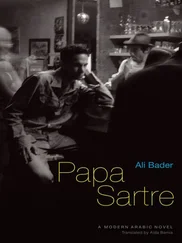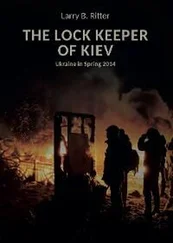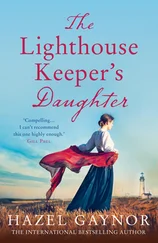One day, Nermine Haidar, the documentary maker I’d met at Queen Alia airport, introduced me to a Turkish official from Istanbul, who worked for a humanitarian organization that helped Iraqis with local government administration. Nermine introduced me to him and his wife Jamina, who was Czech and worked as a primary-school teacher in Limassol. They were a wonderful, cultured couple, who spoke and wrote English. The day Nermine introduced me to them, they invited me for a glass of wine, which strengthened our friendship. They began to invite me almost every evening to their house where I sometimes stayed with them until the small hours. Occasionally I would take along some wine bought at a shop near Al-Khawarna bar. They’d get angry with me and say, ‘We have an endless supply of wine. What’s the pointing of bringing more!’
They had a wonderful library, and I was always borrowing books in English from them. They were real intellectuals and spent a great deal of money on new books. They felt it was almost a duty to keep up with what was being published in Britain and the States. They were eager to get the latest novels and political books on the Middle East and on Turkey in particular. His wife would say to him, ‘Did you know there’s a new novel out by Tariq Ali?’
‘Really?’ he would ask with great interest.
‘Yes,’ she’d answer, ‘I read about in the paper.’
‘I’ll order it today.’
Orhan, the husband, was almost forty. His beard gave him the look of a leftist, which he was, for he believed categorically that the communism that had collapsed in Russia would re-emerge in Turkey. He always wore elegant but loose outfits over his plump figure. He wandered through the house in a slipshod manner, carelessly leaving things lying around. He ate and drank excessively. He had the look of a revolutionary who’d just been engaged in a blazing row.
His wife Jamina, who was so hospitable she embarrassed me, was very attractive and elegant and, even at home, she dressed well. I can’t remember a single time when she looked unhappy. She smiled constantly and told clever political jokes, especially about her husband.
When I talked to them about Kamal Medhat, they were fascinated by his life history and offered to make inquires as to whether or not he’d been to Turkey. They also helped me with Iranian contacts, putting me in touch with a friend of theirs, Khisro, an Iranian intellectual and historian who lived in Tehran. He helped me a great deal with Kamal Medhat’s life and his relationship with Hassan Qazlaji and Farrah Nikdahar during his third trip to Iran. But how did Kamal Medhat reach Tehran this time?
Towards the end of 1980 and in the quietness of dawn before the cock crowed, there was the sound of urgent knocking at the outer gate, which made Haidar Salman jump out of bed. A car engine rumbled outside and there were the loud voices of men all talking at once as the violent knocking on the door continued. Half-awake, he heard heavy footsteps approaching, doors being opened and then being slammed shut. Out of terror, Tahira jumped up after him and followed him to the hall with her small, shivering, bare feet.
The roofed balcony of the hall was covered with vines. The garage lights were on, causing the shadows of men wearing khaki and green suits and with pistols holstered at their sides to fall on the walls. Haidar’s memory was lit up by the frowning, angry faces, the thick, droopy black moustaches and the cruel, brutal eyes. A tall officer rushed forward in his dark safari suit and wide, thick leather belt and raised the gun in his hand. The door was open and the sound of footsteps continued on the stairs. The whole family had been woken in the middle of the night and were standing there, tense and fearful, their eyes burning. Haidar stood in the corridor in his unbuttoned pyjama shirt. Tahira was right behind him in her nightgown, her bare feet on the tiled floor. Hussein stood behind his mother trembling with horror and expectation. The perplexed father placed his hands in the pockets of his dressing gown while the scared mother stood behind her husband for protection, looking at the terrified child by her heels. In an unsteady voice Haidar asked them why they were there. The answer came clear and unwavering, ‘You’re Iranian subjects. You have to leave for Iran now.’
The trucks transported them for some time before arriving at a warehouse-like building. The doors were shut immediately, making the place pitch dark. A man with a powerful torch shone its light into their faces, one after the other. They were unloaded from the truck and ordered to walk in the dark. Following the torch they felt their way until they came to a tiny doorway cut into the metal wall of the warehouse. They had to bend to go through it and found themselves standing in front of a group of officers holding registers. There were guards with guns tucked beneath their loose outfits. From the inside, the building, with its concrete floors, patches of black oil and thin metal poles, seemed like Central Security.
A staircase led up to a senior officer who stood watching what was happening.
The rooms on the upper floor had dangling electric bulbs and tables on which typewriters were placed.
One of the officers started calling out the names of the detainees. Young men between the ages of fifteen and forty were taken aside, while the others were pushed through a narrow passage. Haidar shouted out, ‘Hussein!’ But the sound died on his lips. They were told to get into the covered military truck. Haidar climbed with difficulty into the back of the truck as the guards urged him and his sick wife with gestures and curt phrases to get a move on. The truck took off so suddenly that they all tumbled on top of each other in the dark.
Haidar and Tahira had no idea where Hussein had been taken. Together with many other families, they’d been thrown into huge cattle-trucks to be dumped at the Iranian border.
When they got out of the truck, they were led like cattle towards a deep valley. Haidar couldn’t tell how many there were, but he saw huge crowds. There were women carrying screaming babies in their arms, some of whom were dying of cold or hunger. The numbers were large, but Haidar felt certain they would dwindle on the road that led from the Iraqi border to the Iranian city of Qasr-e Shirin. Some of the refugees who’d been beaten up by the security forces were walking heavily, their legs bruised and swollen. The faces of others were black and blue. The soldiers who searched them took any money that remained in their possession and which they’d hidden away in their clothes.
He held Tahira’s hand, trying to encourage her. His eyes were full of tears but his hands were strong. He looked ahead and saw the deep valley lying beneath a blue sky that was overcast with scattered white clouds. After two hours of walking, Tahira felt very ill and had a horrible pain in her legs. So he supported her while she walked beside him, wearing a large scarf on her head as protection from the heat of the sun. She sometimes fell down on the ground out of sheer exhaustion. Her slippers were torn, her eyes red and her face withered and sallow. She felt as though she were in a trance. ‘How can we leave Hussein behind and go?’ she asked him.
He felt that she was dying, but he couldn’t do anything for her. Totally desperate and on the edge of an abyss, he couldn’t fully absorb what was going on. She spoke to him with a voice that seemed to come from the grave. Her closed lips stopped moving and her eyes froze. Other families walked side by side. Tahira said that she wanted to rest by a tree. So he supported her with his shoulder, made her sit down slowly and threw himself beside her. When he looked towards the distant horizon, he saw the crowds still advancing, with tears in their eyes. His mind was paralyzed, but he reflected on the use of the imagination for the purpose of torturing people. Human beings, he thought, were the only creatures on earth with the capacity to torture their fellow creatures and destroy themselves. Their excessive, preternatural imagination allowed them to envision torture. Thousands of men and women were removed forcibly from their homes and countries, and compelled to settle in strange lands. The irony was that most of these refugees could hardly locate Iran on the map.
Читать дальше












